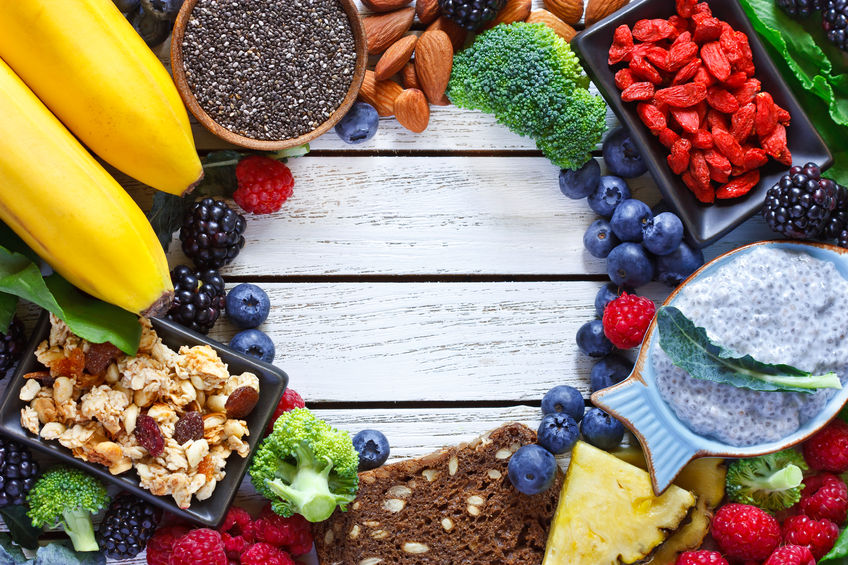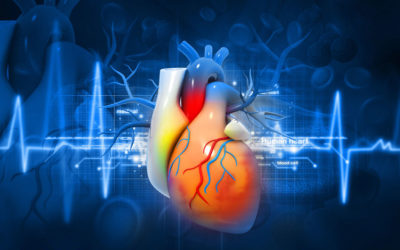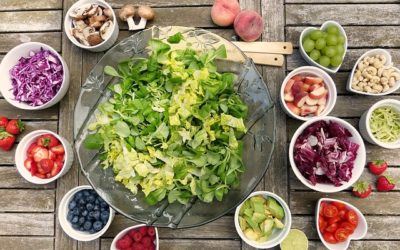Last week, we discussed the Paleo Diet.
On the complete opposite spectrum is the Vegan Diet.
Veganism has flooded Hollywood so much that Carrie Underwood, Ellen Degeneres, Al Gore, and even Mike Tyson, among countless others advocate its benefits. Is it just Hollywood that has jumped on the “Vegan Train?” According to PETA (People for the Ethical Treatment of Animals), 2.5 percent of U.S. residents are vegans, while another 5 percent are vegetarians.
Believe it or not, the principle of Veganism, an extreme form of vegetarianism, is not a new concept. The notion of “flesh-avoidance” can be traced back to ancient Indian and eastern Mediterranean societies. According to TIME Magazine, around 500 BCE, the Greek philosopher and mathematician Pythagoras of Samos first mentioned Vegetarianism. The Pythagorian Theorum isn’t all that he’s known for. Pythagoras promoted benevolence among all species, including humans. Moreover, followers of Buddhism, Hinduism, and Jainism also advocated vegetarianism, believing that humans should not inflict pain on other animals. However, the actual term “Vegan” wasn’t coined until 1944, when five “non-dairy eating vegetarians” wanted to distinguish themselves from a traditional vegetarian. Thus the Vegan Society came into being.
Unlike many diets, Veganism is more than a way of eating. It is a philosophy—a way of life. According to the Vegan Society website, in 1979, the Vegan Society became a registered charity and the definition of “veganism” was officially defined as “a philosophy and way of living which seeks to exclude—as far as is possible and practicable—all form of exploitation of, and cruelty to, animals for food, clothing or any other purpose; and by extension, promotes the development and use of animal – free alternatives for the benefit of humans, animals, and the environment. In dietary terms it denotes the practice of dispensing with all products derived wholly or partially from animals.”
In short, what distinguishes vegans from vegetarians, is that, in addition to not eating meat, poultry and fish, vegans avoid dairy, eggs, honey, and any clothing made of animal origin. They usually choose to not support animal-testing of products and advocate for the fair treatment of animals.

Vegan Diet: Pros and Con
Is it healthy?
Yes and No. It’s easy to be a “lazy vegan” and quickly find yourself gaining weight and/or developing nutrient deficiencies. Just like the term “gluten free” doesn’t make a processed food product healthy, refined flour dough deep fried in shortening and then coated in sugar is still vegan, as are white pasta, rice, veggie burgers and fries, etc. If processed “vegan” foods make up the majority of one’s diet, weight loss and optimal health likely will not be achieved. On the other hand, a wide variety of beans, whole grains, vegetables, fruits, soy products, nuts, and seeds offer significant disease risk reducing benefits.
Pros
If the diet is well-planned and focuses on whole, plant-based foods rather than processed versions, vegan diets are typically higher in dietary fiber, magnesium, folic acid, vitamins C and E, antioxidants and phytochemicals than those of meat-eaters. Additionally, they tend to be lower in calories and saturated fat. The European Prospective Investigation into Cancer and Nutrition (EPIC) study, the only major study to date to compare vegans, vegetarians, and omnivores side by side, found that the average saturated fat intake among vegans was less than one half of the mean intake among meat eaters.
This could contribute to the lower risk of cardiovascular disease observed among vegans (32% lower risk or ischemic heart disease). Moreover, vegetarian and vegan dietary patterns have been linked with numerous health benefits, including a lower risk of hypertension (high blood pressure), cancer, and type 2 diabetes; lower levels of LDL (“bad”) cholesterol and decreased BMI (Body Mass Index).
Cons
While a plant-based diet does offer many health benefits, it requires a lot of smart planning to ensure adequate intake of nutrients. Vegan diets tend to be lower in omega-3 fatty acids, vitamin D, calcium, and zinc. They also tend to be low in two nutrients found only in animal-food sources : Vitamin B 12 and cholesterol. Not all cholesterol is bad. We need a certain amount for healthy hormone production and other bodily functions.
Additionally, it can be difficult to get sufficient protein on a strict vegan diet. Low intake of Vitamin D, Calcium, and protein can make people (specifically women) more susceptible to having low bone density. These nutrient deficiencies can be avoided by consuming fortified foods. However, the more “fortified” a food, the farther it is from its natural state. Your health care professional might recommend supplementation with Vitamin B12, calcium and vitamin D3.
Bottom Line
There are elements of the vegan diet that are beneficial for health. The emphasis on plant-based food sources supplies a variety of phytonutrients and fiber. However, as I’ve said before, the exclusion of entire food groups eliminates sources of essential nutrients. Meats, dairy products and eggs are the most bio-available protein sources and also are excellent sources of B Vitamins.
If you have an autoimmune and/or celiac disease, be aware that vegan does not equal “gluten free.” Vegan diets do include grains, legumes, corn, and other starches.If, for personal reasons, you decide to go vegan, be sure to plan your meals well to ensure balance and adequate supply of nutrients. Consult your physician about additional supplementation.
If you’re interested in aspects of the vegan diet, or would like to get healthier, I recommend making at least one meal completely plant based.
Mark Bittman, an American food journalist, author, and former columnist for The New York Times, started following a vegan diet before 6pm to improve health. Others have adapted this approach as well.
Here is a vegan recipe courtesy of Mark Bittman to get you started. It’s an easy way to get in a serving of veggies as well! Don’t you love how I sneak them in? ☺
Yield: 4 Servings Time: about 1 hour
2½ pounds eggplant
5 tablespoons olive oil
1¼ teaspoons salt, plus more to taste
Black pepper to taste
1 onion, chopped
2 tablespoons minced garlic
2 28-ounce cans diced tomatoes, with their juice
1 cup chopped fresh basil leaves
1 cup whole wheat breadcrumbs, preferably coarse-ground (sub gluten-free, if sensitive)
1. Heat the oven to 450°F and position two racks so that they’ve got at least 4 inches between them. Cut the eggplant crosswise into ½-inch-thick slices and arrange them on two rimmed baking sheets.
2. Use 2 tablespoons of the oil to brush the top of each eggplant slice and sprinkle them with ½ teaspoon salt and some pepper. Roast the eggplant until the slices brown on the bottom and sides, 10 to 15 minutes; turn and cook the other side until they’re crisp in places and golden, another 5 to 10 minutes. When they finish cooking, remove them from the oven and lower the heat to 400ºF.
3. Meanwhile, put 2 tablespoons of the oil in a large skillet over medium heat. When it’s hot, add the onion, sprinkle with another ½ teaspoon of salt, and cook, stirring occasionally, until soft, 3 to 5 minutes. Add the garlic and cook, stirring, for 1 minute. Add the tomatoes and cook, stirring occasionally, until the tomatoes break down and the mixture comes together and thickens, 20 to 25 minutes. Taste and adjust the seasoning.
4. Cover the bottom of a 9 by 13-inch baking dish with about ½ inch of the tomato sauce. Nestle a layer of eggplant into the sauce and top with some of the basil. Cover with a thin layer of tomato sauce and repeat until all the eggplant is used up; reserve some of the basil for serving. Sprinkle with the breadcrumbs, the remaining ½ teaspoon salt, and lots of pepper, and drizzle with the remaining tablespoon of oil. Simmer the remaining sauce (you should have about 2 cups) over medium-low heat, stirring occasionally, while the eggplant bakes.5 Bake until the breadcrumbs are golden and the sauce has thickened, 15 to 20 minutes; let rest for 10 minutes before serving. Serve hot, warm, or at room temperature, garnished with the remaining basil; pass the remaining sauce at the table (or refrigerate or freeze it for another use).
Resources:
http://www.epic-oxford.org/introduction/2/introduction
https://www.nbcnews.com/better/health/why-mark-bittman-wants-you-be-part-time-vegan-ncna889916
http://time.com/3958070/history-of-veganism/
http://www.todaysdietitian.com/newarchives/040114p32.shtml











